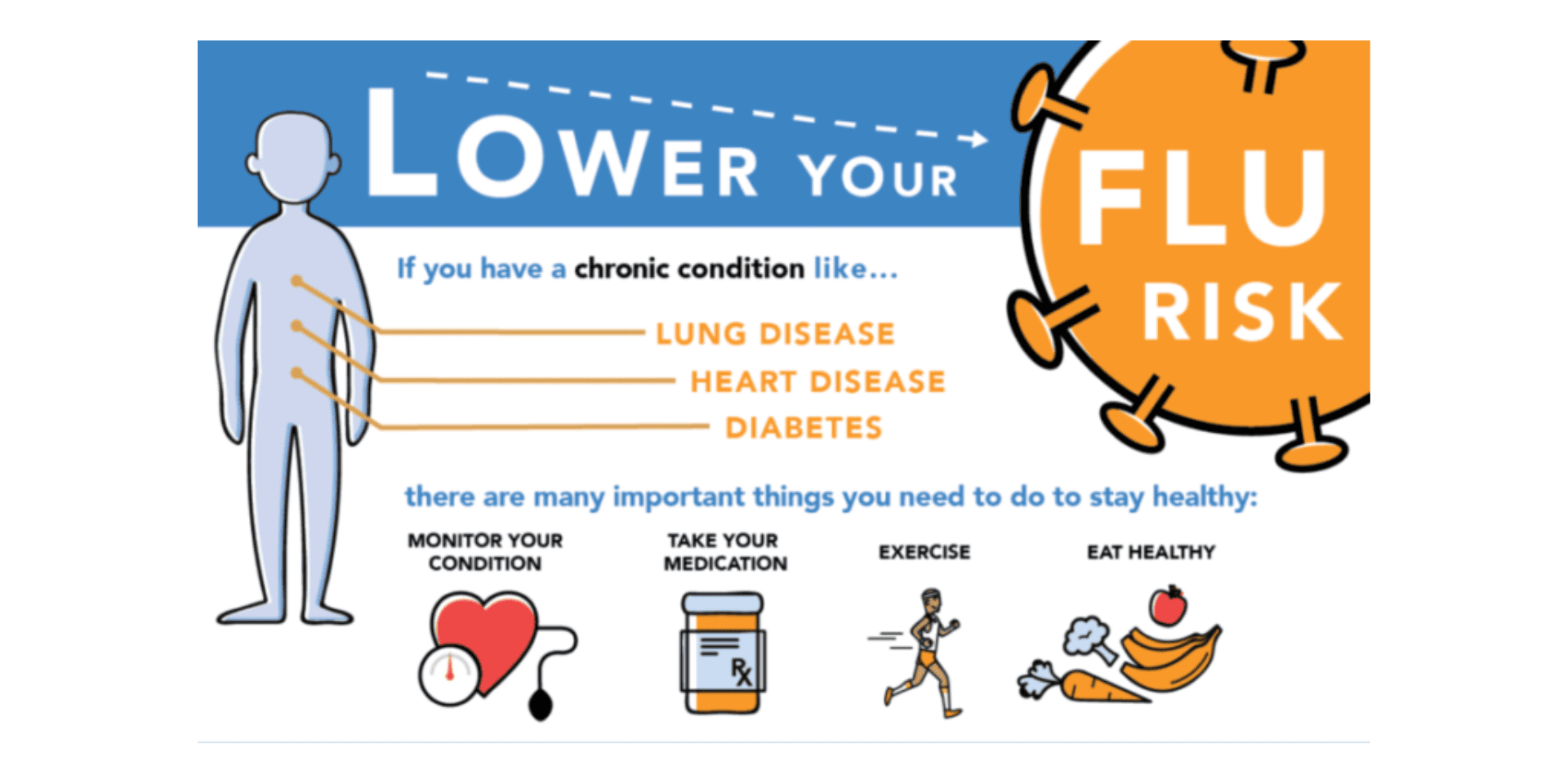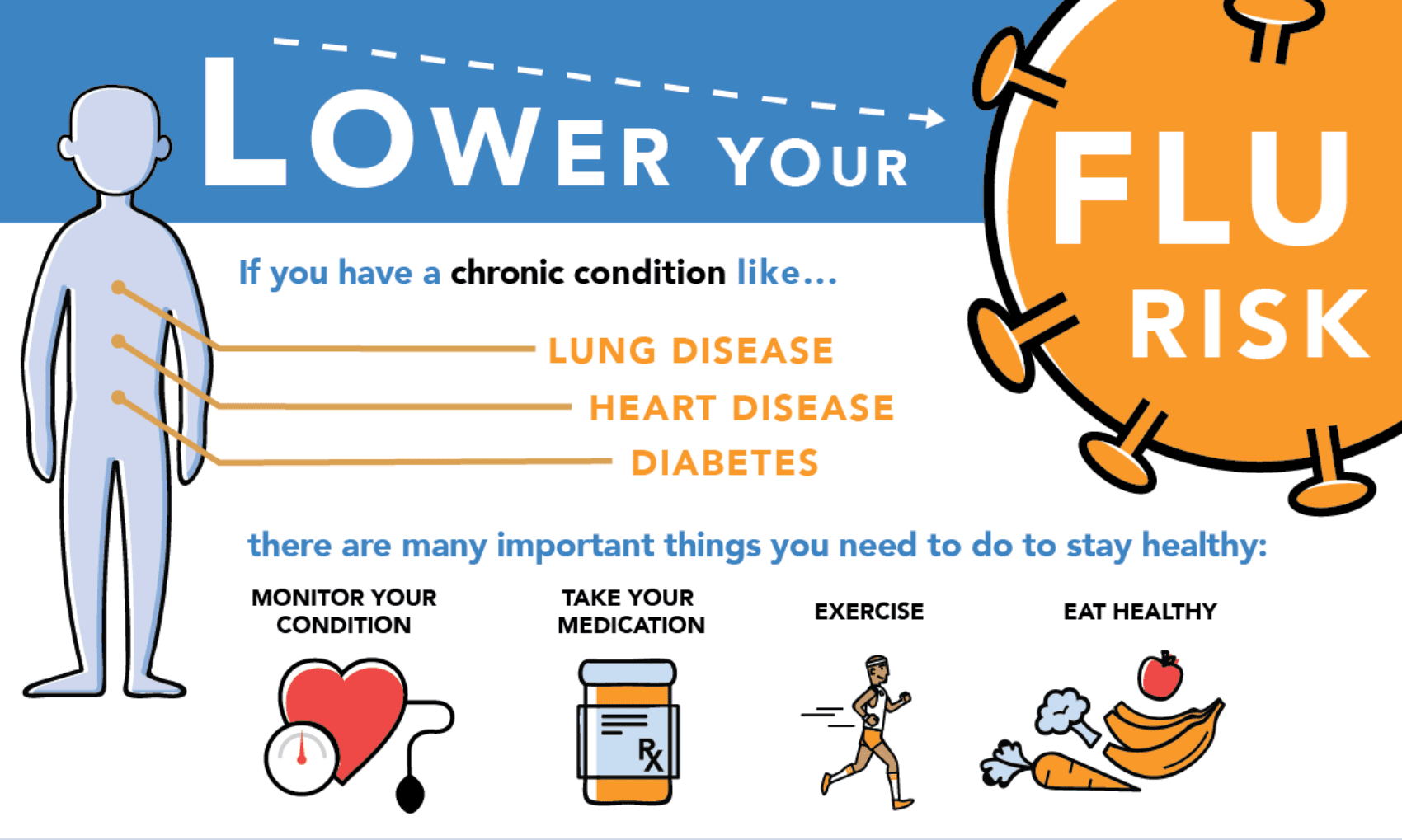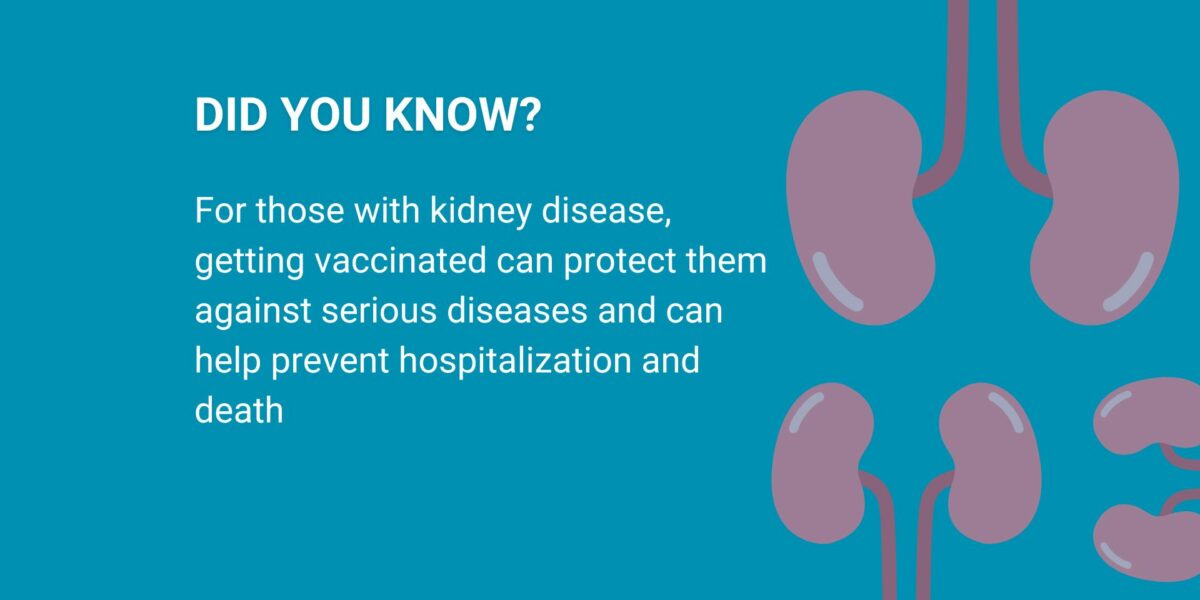
 November is National Diabetes Month, and the National Foundation for Infectious Diseases (NFID) is highlighting the importance of annual influenza (flu) vaccination as a critical component of diabetes management. Healthcare professionals who treat patients with diabetes know how important it is to advise them to take certain steps to stay healthy, including:
November is National Diabetes Month, and the National Foundation for Infectious Diseases (NFID) is highlighting the importance of annual influenza (flu) vaccination as a critical component of diabetes management. Healthcare professionals who treat patients with diabetes know how important it is to advise them to take certain steps to stay healthy, including:
- Eat a balanced diet,
- Exercise,
- Monitor and control blood sugar, and
- Take medication as prescribed
But there is one thing you may not know…annual flu vaccination is just as important to protect their health. The American Diabetes Association recommends that people with diabetes get vaccinated against flu every year.
According to the Centers for Disease Control and Prevention (CDC), diabetes—even if well managed—can make it harder for the immune system to fight respiratory infections such as flu or pneumonia, putting patients at greater risk for serious complications. Studies show that people with diabetes are three times more likely to die and six times more likely to be hospitalized due to flu-related complications, compared to people without diabetes.
Flu Complications for People with Diabetes
For people with diabetes, serious flu-related complications may include:
- Worsening of diabetes (poor glycemic control and acidosis),
- Permanent physical decline and loss of independence
- Hospitalization or even death
Despite these risks, a recent NFID survey found that one out of four US adults who are at greater risk for flu-related complications (including people with diabetes and other chronic health conditions) do not plan to get vaccinated this flu season. The survey also found that 46 percent of high-risk individuals were unfamiliar with pneumococcal disease, and nearly 60 percent report that they have never been advised to get vaccinated against pneumococcal disease.
NFID recommends that healthcare professionals inform people with diabetes about the dangers of flu and pneumococcal disease and insist that they get vaccinated:
- Send reminders during the fall to ensure that patients schedule an office visit to discuss the importance of vaccination to prevent flu and pneumococcal disease
- If the practice does not provide vaccines, write a “prescription” for flu vaccine to emphasize the urgency and importance of flu prevention
- Discuss pneumococcal vaccination during the same visit, to avoid any missed opportunities
3 Tools to Help #LowerYourFluRisk
NFID has developed resources to help share the importance of annual flu vaccination and lower the risks of flu for patients with diabetes. Toolkit materials include:
- 30-second public service announcement (PSA) and short social media videos
- Infographics for healthcare professionals and patients about the importance of flu prevention for those with certain chronic health conditions like heart disease, lung disease, and diabetes
- Sample social media posts and graphics
View the flu & chronic health conditions toolkit at: www.nfid.org/loweryourflurisk.
To join the conversation and get the latest news on infectious diseases, follow NFID on Twitter using the hashtags #LowerYourFluRisk, #FightFlu, and #PreventPneumo; like us on Facebook; follow us on Instagram; join the NFID LinkedIn Group; and subscribe to receive future NFID Updates.
Related Posts

Vaccines and Heart Health: A Vital Connection
Heart disease can increase the risk of serious or fatal complications from respiratory diseases including COVID-19, flu, and RSV

3 Things You Need to Know about Kidney Disease and Vaccines
It is important for people with kidney disease to understand how critical vaccination can be for their health and well-being

5 Reasons Why Vaccines Are Good for Your Heart
For people with heart disease, getting vaccinated is as important to staying healthy as diet and exercise
